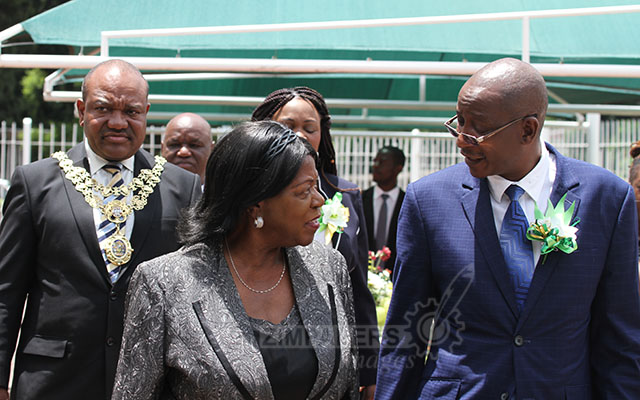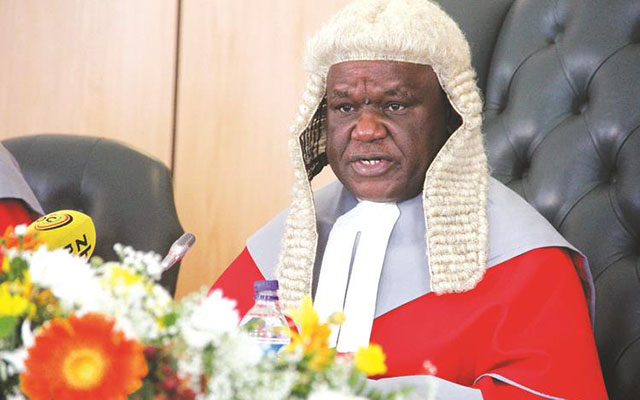UPDATED: 10 special anti-graft courts on cards
Daniel Nemukuyu and Nokutenda Chiyangwa
THE Judiciary has scaled up its anti-graft stance, with a raft of measures that will see the setting up and operationalisation of specialised courts to expeditiously deal with corruption-related matters by March this year, the Chief Justice has said.
The courts should be established in all provinces, but the first two —one in Harare and another in Bulawayo — should open their doors to the public in the first quarter of 2018.
Officially opening the 2018 legal year in Harare yesterday, Chief Justice Luke Malaba also said the Judicial Service Commission (JSC) was fighting corruption internally through a Judicial Ethics Advisory Committee (JEAC), which deals with ethical and integrity issues within the commission.
The Judiciary boss said JSC efforts complement President Mnangagwa’s fight against the scourge.

Minister of Justice, Legal and Parliamentary Affairs Ziyambi Ziyambi (R) chats with Senate President Edna Madzongwe. Picture by Wilson Kakurira
“In his inaugural speech as the President of the Republic of Zimbabwe on 24 November 2017, His Excellency Cde Emmerson Dambudzo Mnangagwa adverted to the scourge of corruption in Zimbabwe. He emphasised the point that the Government will have zero tolerance to corruption. This dovetails with the vision of JSC. Setting up the JEAC is one measure by which the JSC is fighting corruption,” he said.
Chief Justice Malaba said the time had come for the Judiciary to walk the talk on corruption in line with Government policy.
“The other strategy which the JSC has embarked on to eliminate corruption is the establishment of specialised anti-corruption courts in each province in Zimbabwe. These courts are meant to deal with corruption-related matters expeditiously. We will identify members of staff who will undergo specialised training and be well-resourced to man the courts. I am hopeful that two such courts will be operational in Harare and Bulawayo in the first quarter of 2018. We have made the pursuit of the establishment of these specialised courts as one of the intended goals consistent with current Government policy,” the Chief Justice said.
The Judicial Ethics Advisory Committee, the Chief Justice said, was set up in October last year as a way of fighting corruption.
“A corrupt judiciary cannot claim to be totally independent and impartial. A corrupt judiciary is a hindrance to an effective justice delivery system and ultimately access to justice. It therefore, becomes critical to walk the talk in the fight against corruption by putting in place concrete and recognisable measures to address the ills associated with corruption,” Chief Justice Malaba said.
An upward review of salaries and working conditions for magistrates and support staff, the Chief Justice said, would also go a long way in reducing cases of corruption within the judiciary.
“Salaries of magistrates are still not commensurate with the important judicial positions they hold. It is acceptable that low salaries cannot be a justification for lack of judicial integrity but payment of a living wage can go a long way towards enhancing that integrity. Might I also add my voice to the call to review conditions of service for all members of staff in the judicial service, as this will not only cushion them from financial hardships but also boost their morale in the workplace,” he said.







Comments